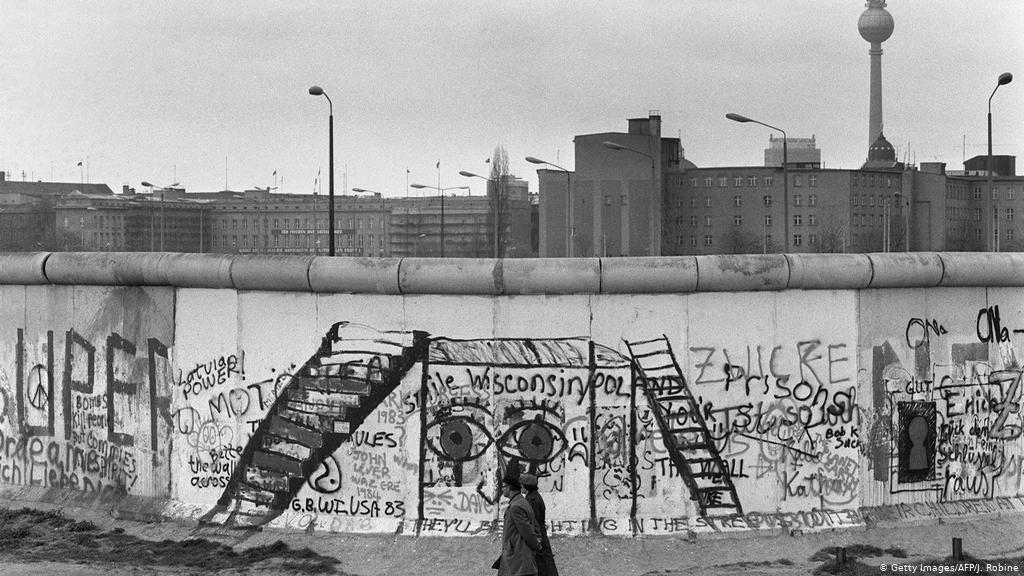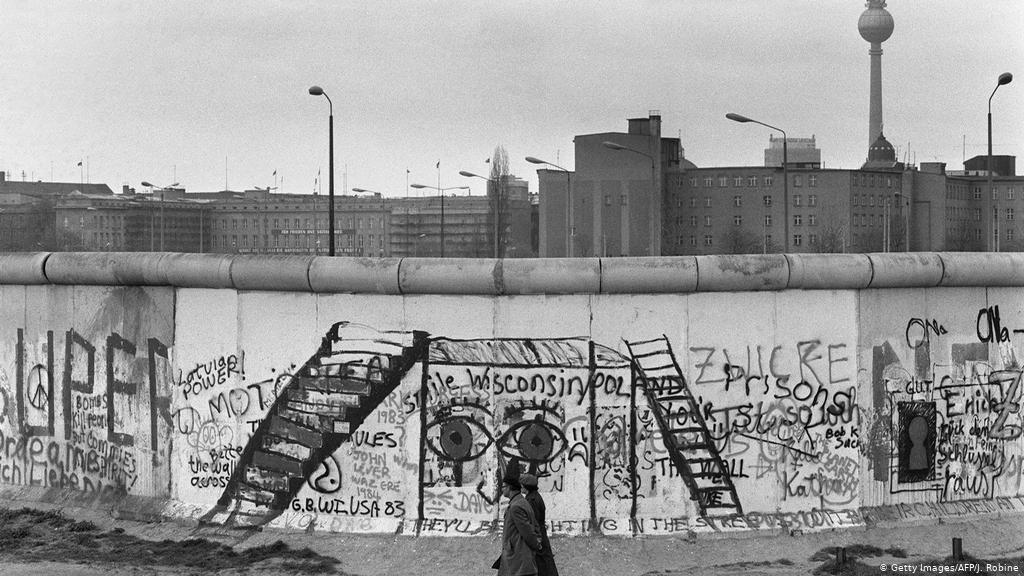Introduction
Our topic is the construction of the Berlin Wall and how it went toward the fall of it.
The first two sources are the letters exchanged by the leaders of East Germany and the Soviet Union.
Then we introduce sources that show the influence of the United States to the fall of the Berlin Wall.
Primary Sources
Letter from Ulbricht to Khrushchev on Closing the Border Around West Berlin (Arata Ono)
This letter is written by the leader of the German Democratic Republic (GDR) Ulbricht directed to the Soviet Leader Khrushchev. It tells Khrushchev that the border around West Berlin was closed. It emphasizes that it was a measure to protect the GDR from West Berlin. This letter repeatedly emphasizes the negative influence of West Berlin to the GDR including subversive measures. It also mentions the people coming from West Berlin to East Berlin to buy goods and services, and after closing the border with a wall, there was plenty of those left for East Berlin citizens. It finally appeals to the Soviet Union to strengthen the tie between the two countries, the GDR and the Soviet Union.
Reference
“Letter from Ulbricht to Khrushchev on Closing the Border Around West Berlin,” September 15, 1961, History and Public Policy Program Digital Archive, Published in CWIHP Working Paper No. 5, “Ulbricht and the Concrete ‘Rose.'” Translated for CWIHP by Hope Harrison. SED Archives, IfGA, ZPA, Central Committee files, Walter Ulbricht’s office, Internal Party Archive, J IV 2/202/130. https://digitalarchive.wilsoncenter.org/document/116212
Letter from Khrushchev to Ulbricht Regarding the Situation in Berlin (Arata Ono)
This is the letter that replies to the previous letter sent by Ulbricht to Khrushchev. In this letter, Khrushchev expresses the strong supportive attitude toward the actions taken by the GDR. He agrees with the idea that the border control would strengthen the GDR’s economic and political environment. The letter ends with the acceptance of sending the Soviet delegation to the GDR and expression of Khrushchev’s very positive attitude toward Ulbricht and the GDR.
Reference
“Letter from Khrushchev to Ulbricht Regarding the Situation in Berlin,” September 28, 1961, History and Public Policy Program Digital Archive, SED Archives, IfGA, ZPA, J IV 2/202/130. CWIHP Working Paper No. 5, “Ulbricht and the Concrete ‘Rose.'” Translated for CWIHP by Hope Harrison. https://digitalarchive.wilsoncenter.org/document/116213
Analysis
These letters discuss the completion of closing the border between West Berlin and East Germany. They blame Western powers and West Berlin for the decline of East Berlin. They justify the construction of the Berlin wall by stating it was a measure to protect East Germany from the West. These letters suggest that the tie between The GDR and the Soviet Union would become strengthened in the future.
Primary Sources
Ronald Reagan’s speech at the Brandenburg gate, West Berlin, Remarks on East-West Relation.(Chen) (June 12, 1987)
This is the speech which President of United States Ronal Reagan himself delivered his message at West Berlin
“Behind me stands a wall that encircles the free sector of this city,part of a vast system of barriers that divides the entire continent of Europe.”
“Yet it is here in Berlin where the wall emerges most clearly; here, cutting across your city, where the news photo and the television screen have imprinted this brutal division of a continent upon mind of the world.“
“…Yet I do not come here for lament. For I find in Berlin a message of hope, even in shadow of this wall, a message of triumph.“
“In the 1950s, Khrushchev predicted : “We will bury you.”But in the West today, we see a free world that has achieved a level of prosperity and well-being unprecedented in all human history. In the Communist world, we see failure, technological backwardness, declining standards of health, even want of ….Freedom leads to prosperity. Freedom replaces the ancient hatred among the nations with comity and peace. Freedom is the victor.”
“General Secretary Gorbachev, if you seek peace, if you seek prosperity for the Soviet Union and Eastern Europe, if you seek liberalization: Come here to this gate! Mr. Gorbachev, open this gate! Mr Gorbachev, tear down this wall!”
“And I invite Mr. Gorbachev: Let us work to bring the Eastern and Western parts of the city closer together, so that all the inhabitants of all Berlin can enjoy the benefits that come with life in one of the great cities of the world.”
Analysis United States’s influence, Cold War
(Two years later)
Conversation on GDR-FRG Economic Cooperation between Alexander Schalck and Egon Krenz (Chen) (November 6, 1989)
Establishing common understanding, preparation of opening and further discussion. In details of law, rules, freedom of expression. Discussion on generous travel regulation as to secure tourist and visitor traffic. Loan plans on creating business chances.
(3 days before Fall of Berlin Wall)
Conclusion: During the period of two years
References:
“Speech by President Ronald Reagan at the Brandenburg Gate, West Berlin, ‘Remarks on East-West Relations’,” June 12, 1987, History and Public Policy Program Digital Archive, Ronald Reagan Library, Speeches https://digitalarchive.wilsoncenter.org/document/134316
“Conversation on GDR-FRG Economic Cooperation between Alexander Schalck and Egon Krenz,” November 06, 1989, History and Public Policy Program Digital Archive, Published in Hans-Hermann Hertle, Der Fall der Mauer. Die unbeabsichtigte Selbstauflösung des SED-Staates, 2 nd edition, (Opladen: Westdeutscher Verlag, 1999), pp. 483-486. Translated for CWIHP by Howard Sargeant. https://digitalarchive.wilsoncenter.org/document/113037

